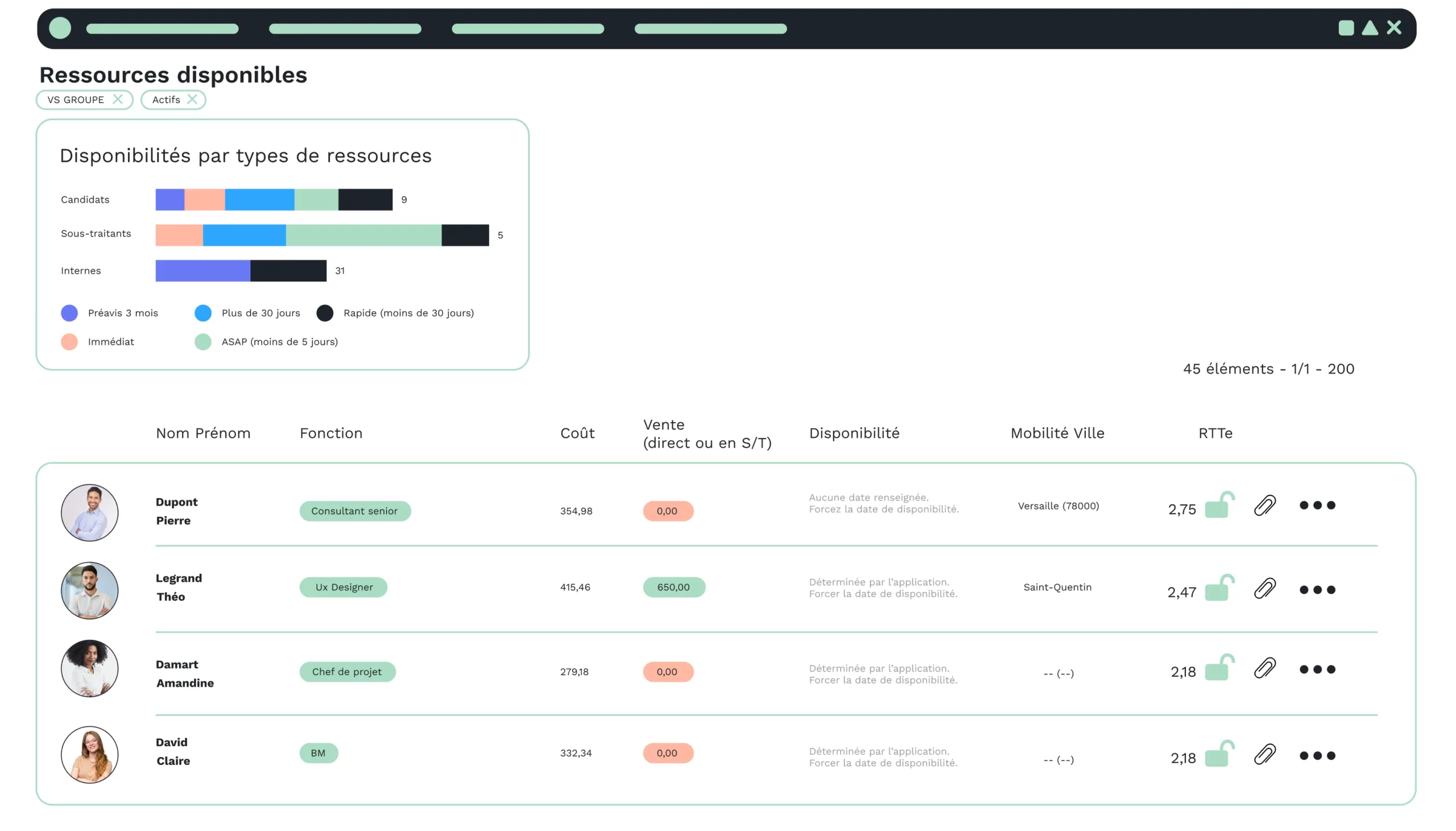There are many reasons why companies want to integrate an ERP system into their business: they want to change their outdated legacy system, improve their business processes and carry out more complex operations.
For those who haven’t yet taken the plunge, many questions remain unanswered, not least about how ERP improves business efficiency. This is the question we’ll try to answer in this article.
The benefits of ERP for IT services companies
According to the Panorama consulting group, in its 2020 report ” The 2020 ERP report”, here are the 3 main benefits of ERP anticipated by companies:
Reporting and visibility
Companies can access data in real time and comply with regulations. Using data, companies can define KPI’s (Key Performance Indicators) and ensure that their projects are progressing towards their objectives.
Operational efficiency
This benefit will translate into improved employee productivity and efficiency, lower costs, and the decompartmentalization and standardization of operations. In short, new processes and technologies enable employees to improve their productivity.
Growth and competition
Companies also anticipate improvements in customer experience, interactions with suppliers and the construction of new operating models.
8 ways ERP improves your IT services company’s efficiency
Data accessibility
Previously, each department had to manage its own data and then pass it on to the relevant parts of the IT services company. This included the time it took to integrate the data into the process, update it and transmit it.
With ERP, these small actions are no longer necessary, as information is updated by a simple action within the software. Data is easily accessible by all employees, quickly and up-to-date.
Task automation
Previously, IT services company’s employees would perform repetitive manual tasks with no added value, such as entering the same data in several Excel files.
Now, with ERP, these tasks are automated, freeing up staff time for projects that will contribute to the company’s growth. Data that was entered several times is now entered only once, but duplicated within the solution.
Business process improvement
Customer relations, invoicing and payroll, all of which require reliable, up-to-date data, are carried out more quickly thanks to the data available within the application.
ERP will establish a correlation between the various data to make them appear in the right place.
Reduce administrative errors
Automation has made it possible to reduce human errors, and hence administrative errors, by reducing the frequency of data entry.
Reporting
Reporting gives you a global view of your company’s performance and enables you to make forward-looking plans.
This enables decision-makers to plan investments, develop a new product, and have a vision of the company’s finances, among other things.
Improving relations with third parties
The data in the application and the reporting available to employees enable them to better prepare their business relationships with customers, suppliers and partners.
As a result, business relations have improved.
Improving internal collaboration
The fact that each employee has independent access to information, without having to wait for departmental updates which can take a long time to arrive, improves internal relations: less stress waiting for certain data and therefore less friction between employees.
Mobile use
Data centralization enables anywhere access to the company’s information system. A salesperson on the move can, for example, upload a CV, an order, a graphic, etc.
Properly integrated and used within the company, ERP contributes to improving the efficiency of employees, and therefore of the company as a whole. Gone are the days of small, time-consuming, repetitive actions, replaced by smoother processes and more reliable, accurate data that’s easier to access.
Managers have access to real-time data evolution, enabling them to make decisions that will contribute to the company’s growth.
Read also







